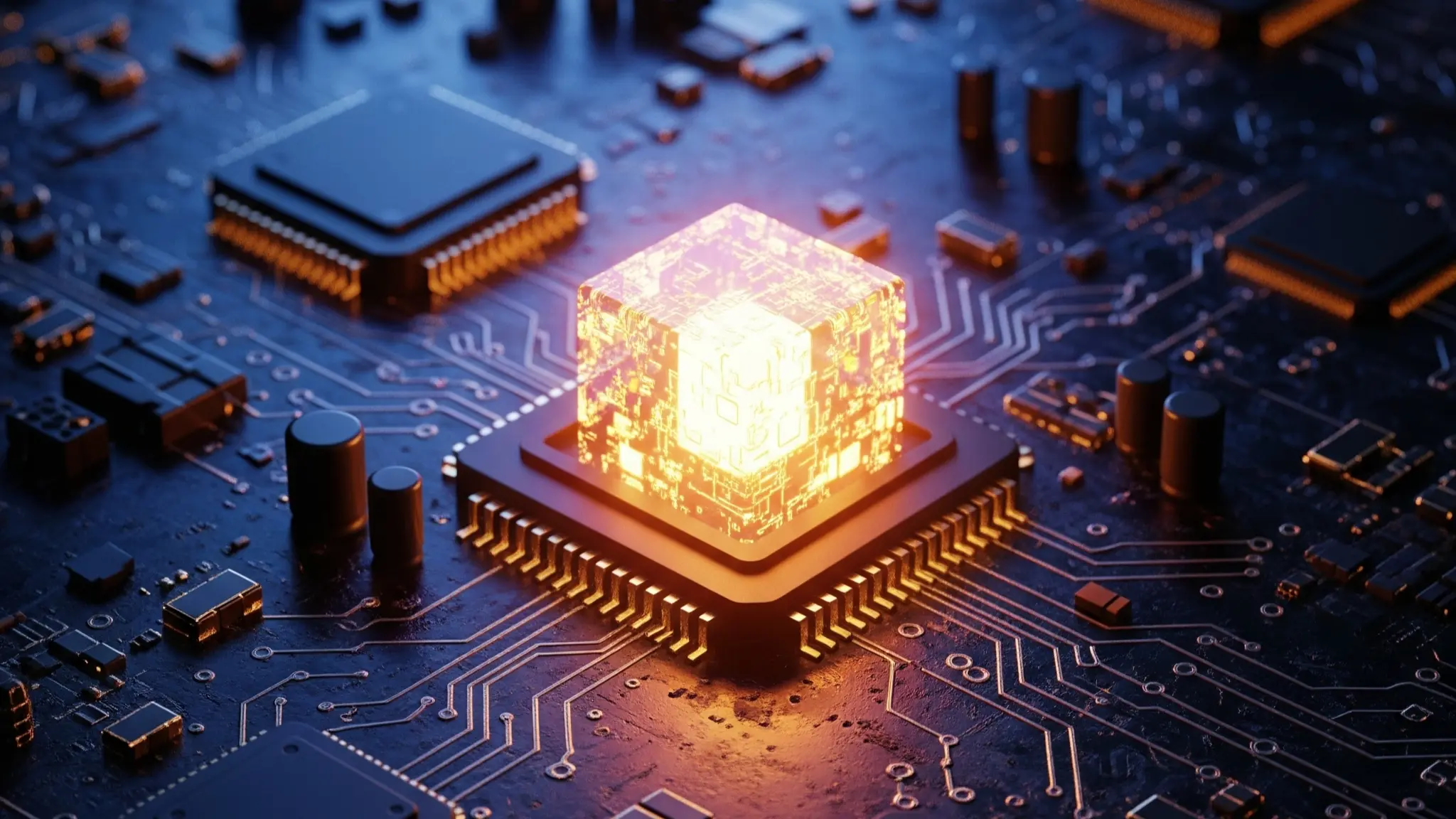AI Transformation

Amid the wave of technological revolution, AI is our powerful engine for transformation and upgrading.
Nelson An-ping Chang
CEO, TCC Group Holdings
AI Smart Glasses
TCC's European subsidiary, CIMPOR, has adopted the RealWear Navigator 500 AI smart glasses. Engineers can use voice commands to access necessary information, which is then displayed via augmented reality (AR). If equipment malfunctions or other issues arise, they can instantly connect with remote experts for technical support.
Through AI, engineers receive clear, step-by-step guidance to precisely complete equipment maintenance, significantly reducing errors and ensuring smooth operation. Furthermore, the AI smart glasses can display real-time equipment health data, allowing engineers to anticipate issues before they occur.
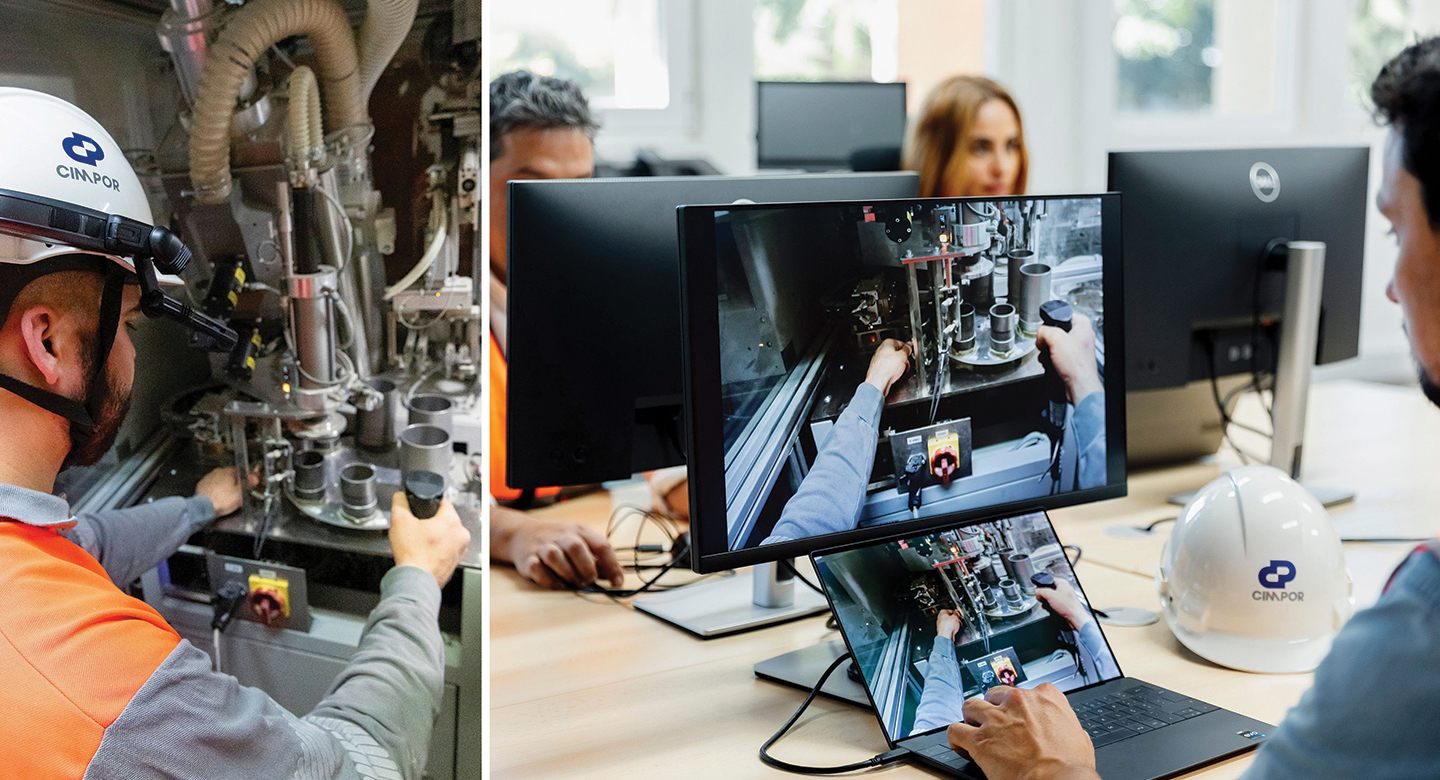
Engineers wearing smart glasses can receive technical support from remote experts via AR
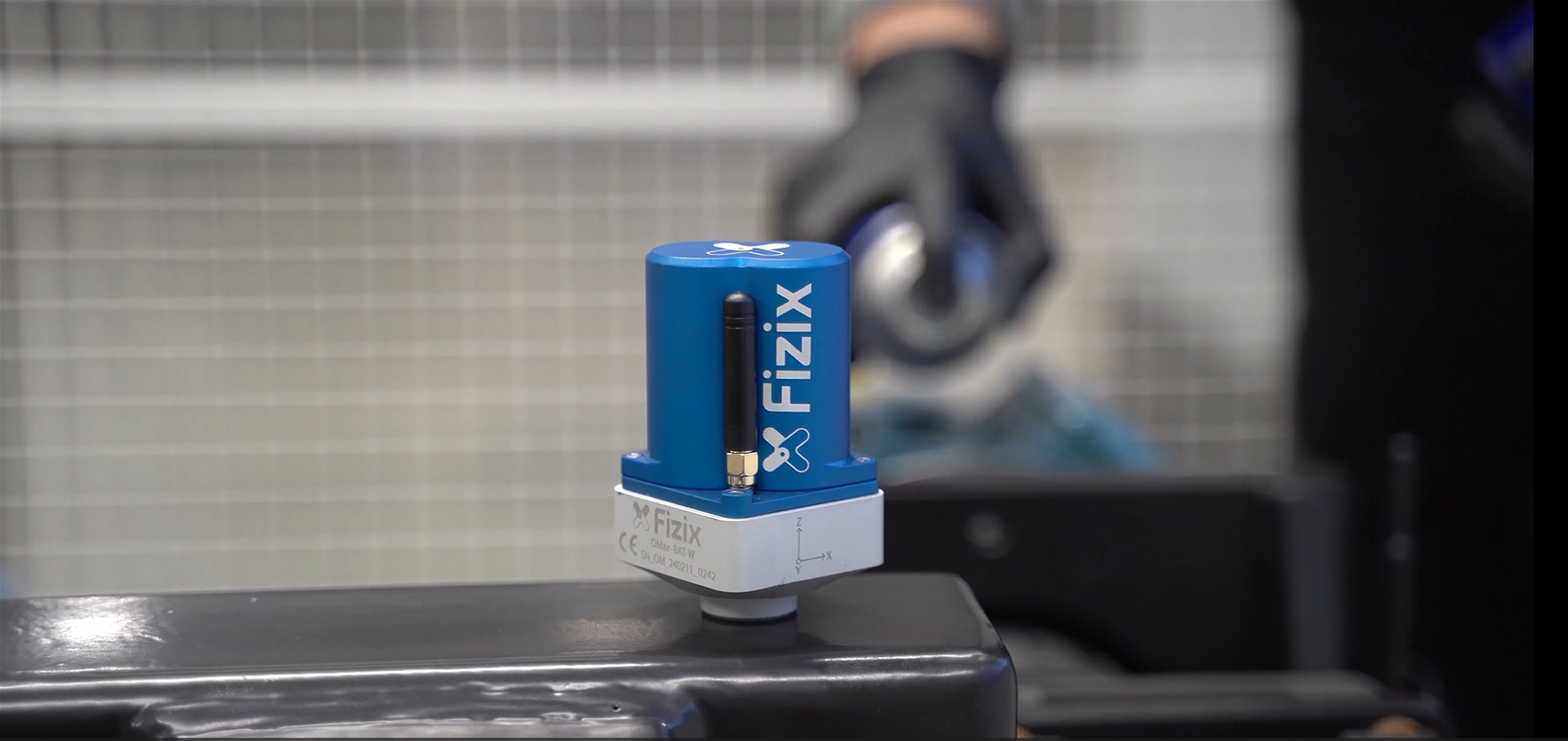
Cement Plant AI x IoT Smart System: Real-time Monitoring and Prevention of Potential Failures
AI Smart Monitoring System
TCC's European subsidiary, CIMPOR, is collaborating with British startup FIZIX to implement tens of thousands of AI x IoT smart monitoring systems across 25 plants in 6 countries. This system utilizes AI to monitor the health of cement plant equipment, enabling real-time monitoring and data analysis. It acts as a smart brain for the production center, predicting and preventing potential equipment failures in advance, ensuring stable factory operation, and avoiding losses caused by production interruptions
AI Drone Inspections
CIMPOR's Alhandra plant in Portugal and TCC's Yingde plant in Mainland China have both introduced AI drones for remote equipment inspections. These drones use thermal imaging technology to precisely identify equipment defects and efficiency anomalies.
Operating from a central control platform, the AI drones perform daily autonomous inspections along preset flight paths without human intervention. This allows inspectors to remotely monitor and compare defects in solar farms and temperature abnormalities in cement plant equipment, significantly reducing the labor and time costs associated with manual inspections. TCC's Hualien Hoping Plant is also currently planning for similar implementation.
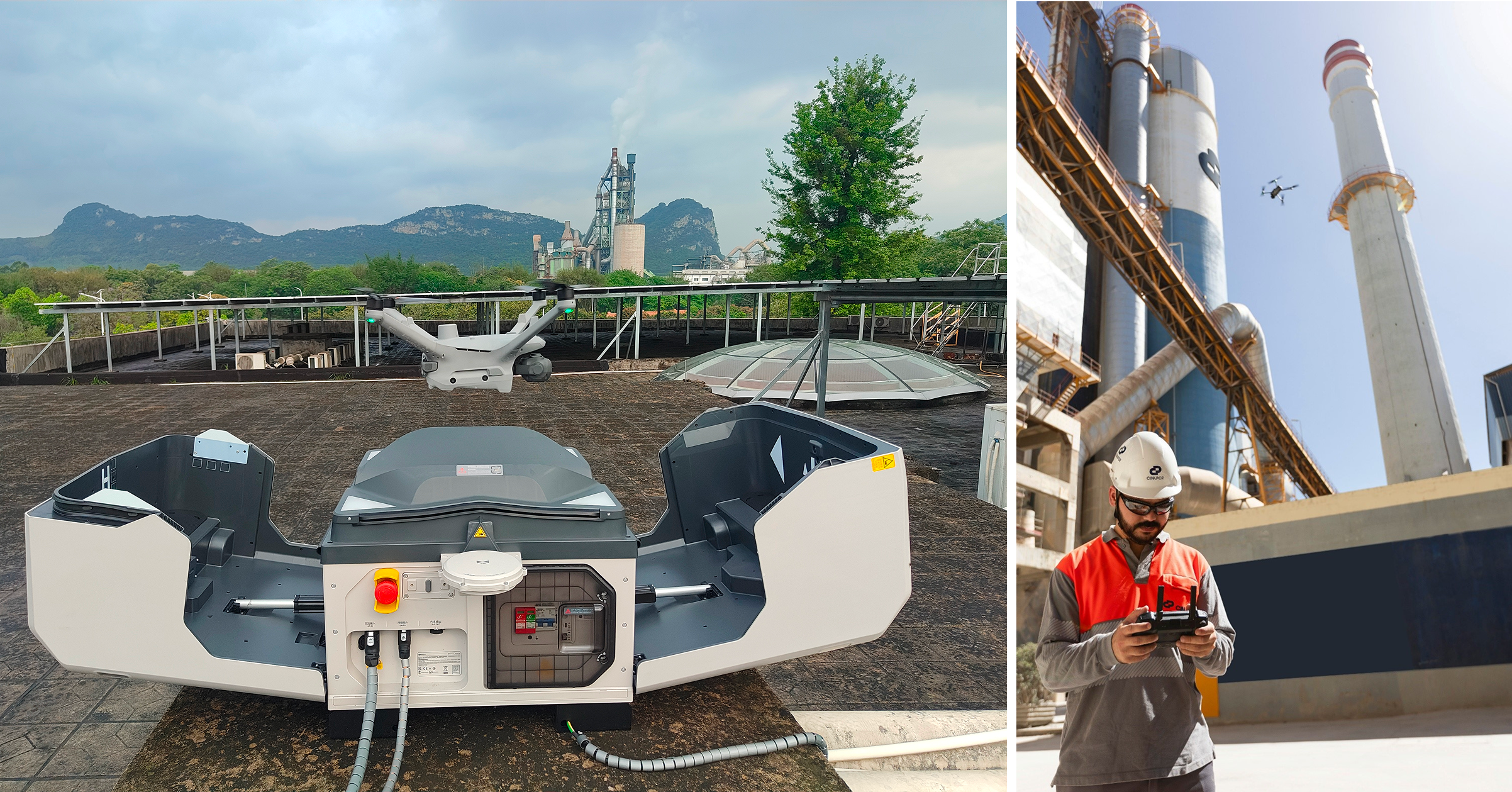
AI Drones for Autonomous Plant Inspections, Identifying Equipment and Efficiency Anomalies
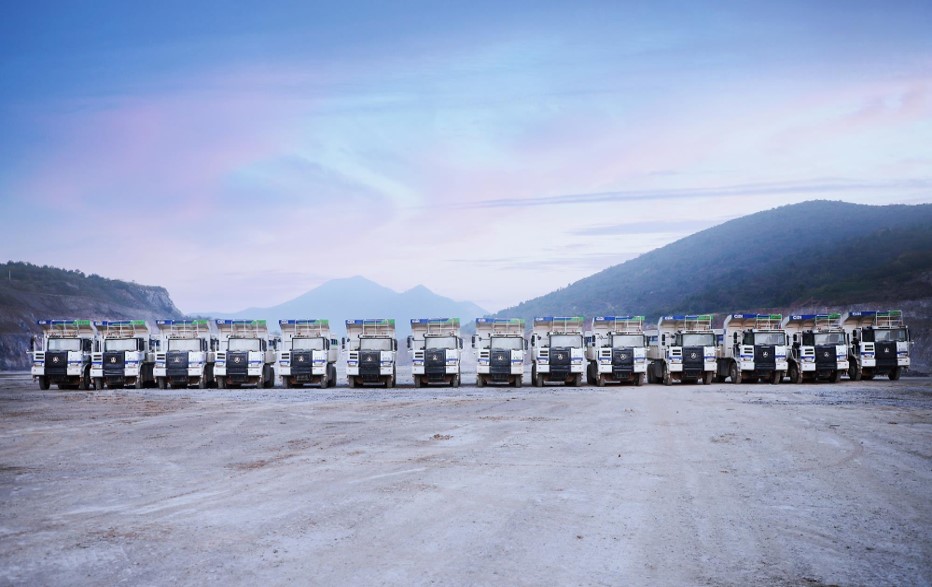
AI System Combined with Autonomous Electric Mining Trucks: Reducing Energy Use and Carbon Emissions in Transportation
AI Smart Quarry
TCC's Jurong plant in Mainland China became TCC's first AI smart mine in 2022. It integrated 14 autonomous electric mining trucks. These trucks are equipped with perception devices such as lasers, millimeter-wave radar, ultrasonic radar, and visual cameras, which transmit environmental information in real time via 5G. An AI system automatically calculates and plans optimal routes for the mining trucks, intelligently identifying and safely avoiding obstacles, which significantly reduces energy consumption and carbon emissions. Additionally, a remote monitoring center can intervene at any time to ensure the safety and efficiency of mining operations.
TCC's Yingde plant in Mainland China completed its implementation and began operations in December 2024, and the Hualien Hoping plant is currently undergoing relevant planning.
AI Concrete Compressive Strength and Mix Proportion Model
The 28-day strength of concrete is a crucial acceptance standard for clients, yet it's often affected by climate changes and fluctuations in water content. Traditionally, to ensure high quality, the mix proportion at the time of dispatch is set at 1.5 times the required strength, which unnecessarily increases cement usage and, consequently, carbon emissions.
TCC's Low-Carbon R&D Center, product factories, and TCC Information have collaborated to develop an AI strength prediction model. TCC's subsidiary, CIMPOR, has also invested in this research. In the first phase, TCC built a 28-day compressive strength prediction model, combining dispatch data, client requirements, and transportation data to instantly predict the final strength, thereby reducing resource waste. CIMPOR, on the other hand, is integrating sensor data from both mixing stations and ready-mix trucks to dynamically predict slump and fluidity, assisting in adjusting the mix proportion and improving the stability of delivery quality.
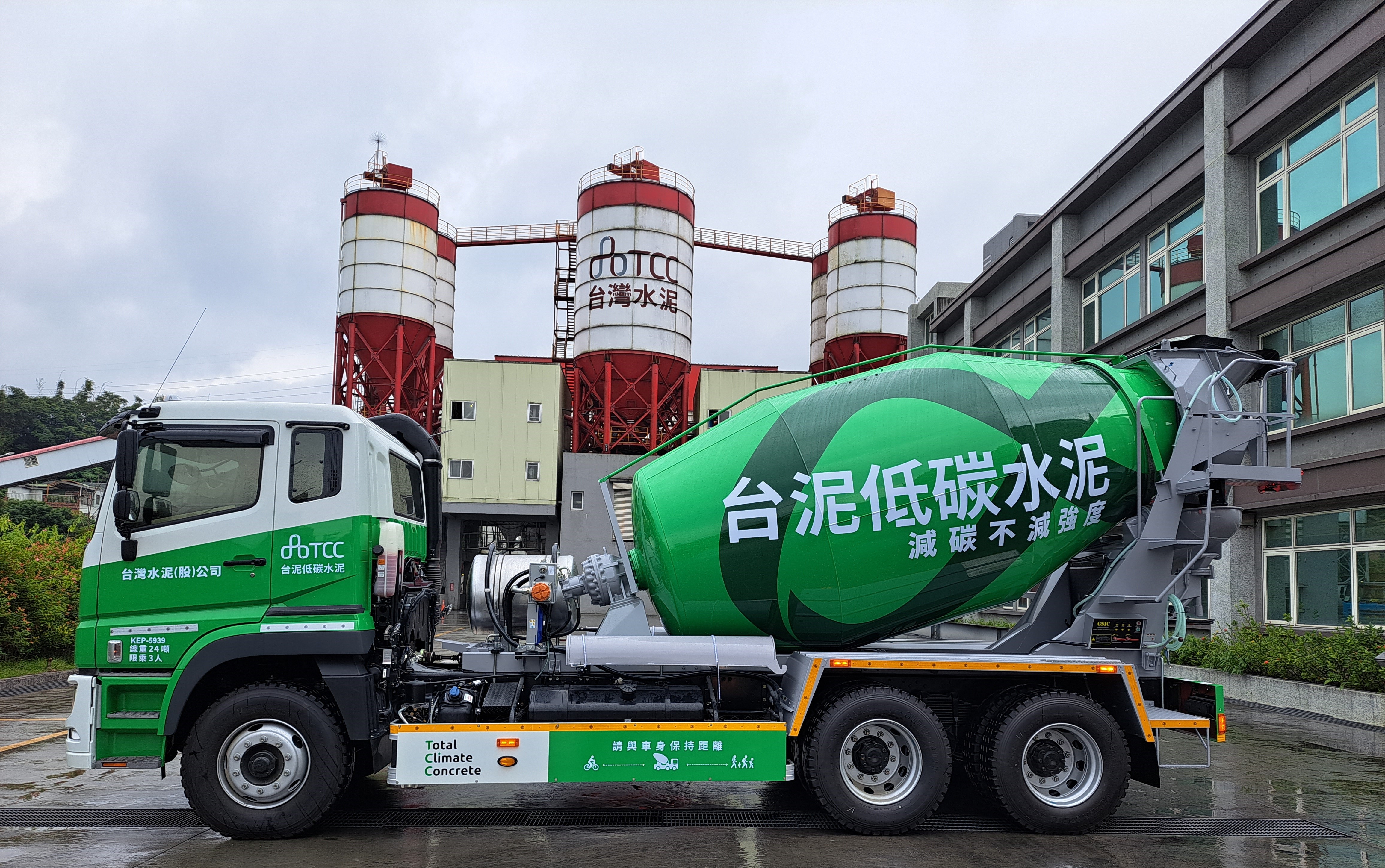
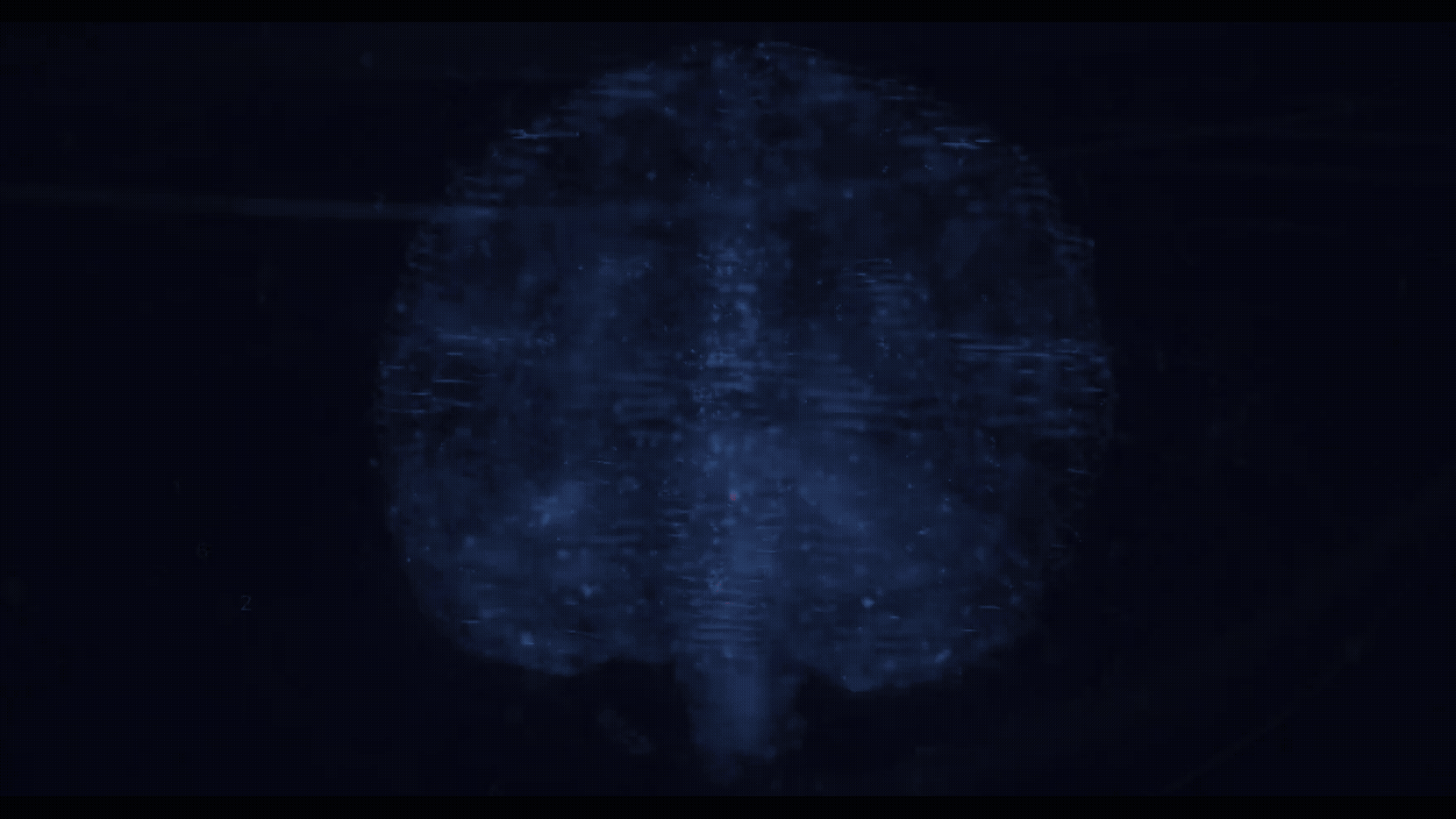
Other AI Prediction Models
TCC's European subsidiary, CIMPOR, has developed the "IndustrAI" AI model. This model utilizes big data, sensors, and generative AI to optimize product manufacturing processes and predict quality.
TCC' European subsidiary, Atlante, is using charging data combined with AI algorithm modeling to intelligently analyze charging demand gaps in various regions and optimize the layout of charging stations.
TCC's subsidiary, Molicel, has established a high-end ternary lithium battery life prediction model to accelerate the development of low-carbon products.



